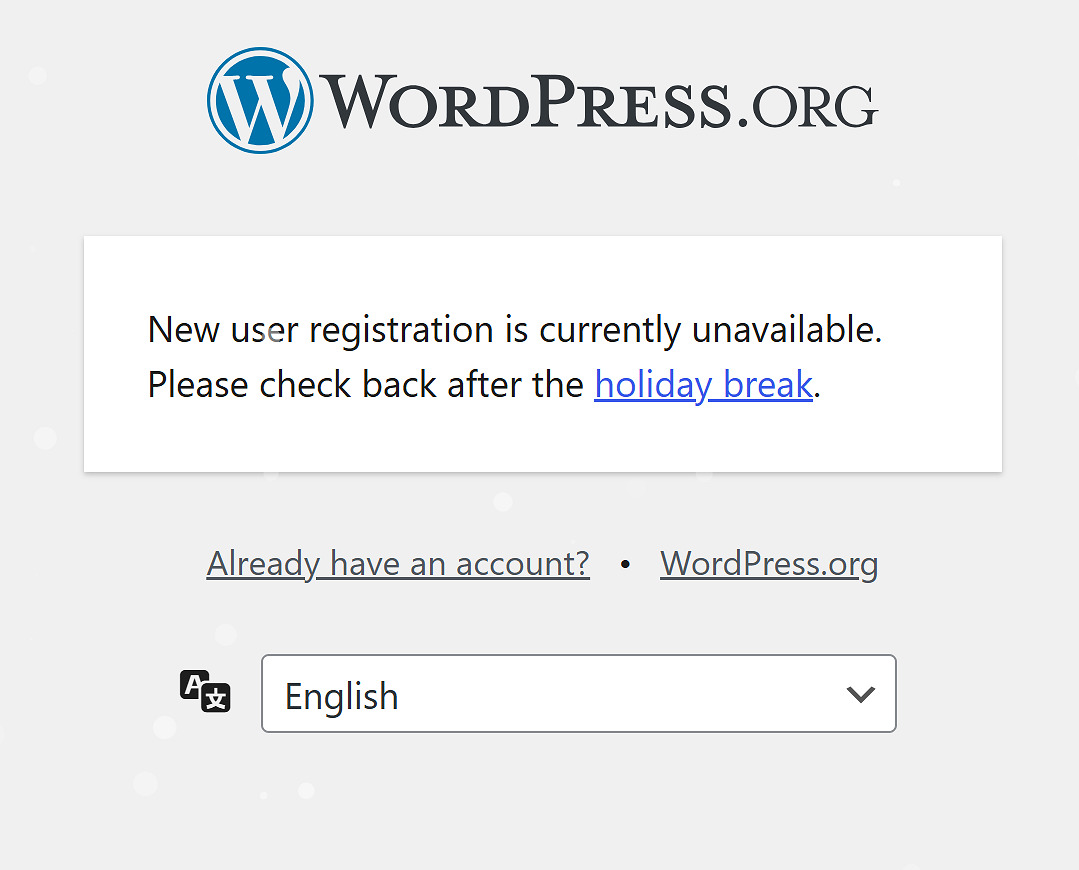
Matt Mullenweg, co-founder of WordPress, has made a significant announcement by declaring a holiday break for WordPress.org services for the first time. The break, intended to give Mullenweg and the many volunteers behind WordPress a much-needed rest, will temporarily halt several key services, including new user account registrations, plugin reviews, and new submissions to the WordPress plugin, theme, and photo directories. Mullenweg, in a blog post, explained that this break would allow everyone involved in the project to take a step back after a busy year of maintaining the platform.
The pause in services has sparked mixed reactions from the WordPress community. While some applauded the break, recognizing the need for volunteers to rest, others voiced concerns about the disruption this would cause, particularly regarding WordCamp ticket sales. Since creating a WordPress.org account is mandatory to purchase tickets for WordCamp events, the suspension of new account registrations left many people unable to buy tickets for upcoming WordCamps, such as WordCamp Europe, Asia, and other major events.
Jeff Chandler, a respected member of the WordPress community, voiced his concerns about the potential negative impact on event organizers and attendees. He suggested that this disruption could seriously affect the WordCamp community, especially with major events having already started ticket sales. The issue was swiftly addressed when Joost de Valk of Yoast SEO raised it on the WordPress GitHub. Dion Hulse acted quickly, re-enabling WordPress.org user registrations for users attempting to purchase WordCamp tickets. This solution allowed people to continue buying tickets despite the temporary suspension of new registrations.
In his announcement, Mullenweg also referenced the ongoing legal battle with WP Engine, which has taken a significant toll on his time and energy. Mullenweg sarcastically alluded to the legal disputes, suggesting that if anyone wanted to support his legal defense, they could sign up for WP Engine services. He also explained that WP Engine would be unaffected by the holiday break, as the company has full access to WordPress.org services during this period.
Despite the temporary inconvenience caused by the service pause, Mullenweg emphasized that the decision was necessary to allow the WordPress team to recharge. The hope is that these services will resume sometime in the new year, but no specific date was given. The announcement has opened up broader discussions within the WordPress community about leadership, governance, and the increasing pressures on the platform, especially in light of the ongoing legal issues.
The mixed reactions to Mullenweg’s announcement reflect the tensions within the WordPress community. While some appreciate the need for a break, others are concerned about the long-term consequences of these pauses, especially when key services are temporarily halted. The holiday break serves as a reminder of the challenges that WordPress faces in balancing the needs of its volunteers, users, and developers while navigating legal disputes and external pressures.
As 2025 approaches, the WordPress community will undoubtedly continue to discuss the future direction of the platform. While the holiday break offers a brief respite for the team, the legal battles and leadership questions hanging over the project will likely continue to shape the discourse. How Mullenweg and the wider WordPress team respond to these challenges will have a significant impact on the platform’s future, both in terms of governance and its ability to continue evolving as the dominant force in content management systems.
For now, the break offers a moment of pause for the community, but it also raises important questions about the future of WordPress, its leadership, and its place in the ever-changing landscape of the internet. As Mullenweg and the WordPress community look ahead, the hope is that they can return to work in the new year with renewed energy and a clear vision for the platform’s continued success.
Angela Rogers